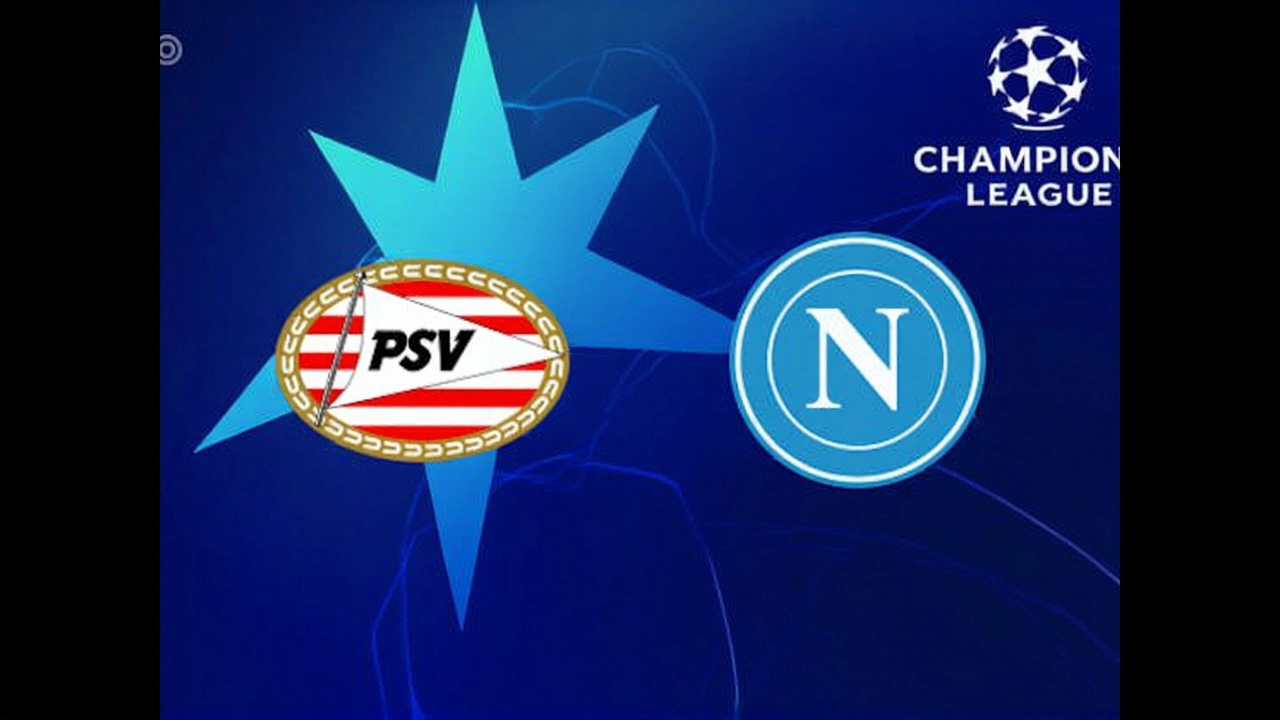When PSV Eindhoven turned a 1-0 deficit into a 6-2 thrashing of Napoli on Tuesday night, the roar inside Philips Stadion could have been heard across the Netherlands. The drama unfolded on at 19:00 UTC, a date that will sit alongside Ajax’s 1979 feat as the last time a Dutch club scored six goals in a single Champions League match.
Historic Comeback in Eindhoven
The early spell belonged to the Italians. Scott McTominay slipped past the defence in the 31st minute, giving Napoli a slender lead. Eight minutes later, a mishap turned the tide: Napoli defender Alessandro Buongiorno inadvertently looped the ball into his own net, and PSV equalised through midfielder Ismael Saibari. What followed felt like a script written for a Hollywood climax.
Match Statistics and Key Moments
Stat sheets told the story before the final whistle. PSV enjoyed 59 % possession, fired 19 shots (six of them big chances) and posted a 2.89 expected‑goals (xG) tally, while Napoli managed 41 % possession, ten shots and an xG of 1.16. The numbers painted a picture of tactical dominance, but the highlights added colour:
- 30′ – Scott McTominay (Napoli) scores.
- 39′ – Own goal by Alessandro Buongiorno (Napoli).
- 40′ – Ismael Saibari (PSV) restores parity.
- 58′ – Dennis Man (PSV) scores after Lorenzo Lucca is sent off.
- 66′ – Dennis Man doubles his tally with a thunderous left‑footed strike.
- 85′ – Substitute Ricardo Pepi taps home two minutes after entering.
- 87′ – Couhaib Driouech nets the fifth for PSV.
- 90+2′ – Scott McTominay (Napoli) scores a consolation.
Goalkeeper Vanja Milinković‑Savić was kept busy, yet the Dutch side’s relentless pressure left him exposed, especially after the red card reduced Napoli to ten men.
Coaches' Decisions and Tactical Shifts
Peter Bosz, PSV’s head coach, made a headline‑grabbing move before kickoff: he left U.S. international defender Sergiño Dest on the bench for arriving late to training. While the decision sparked a brief media firestorm, Bosz’s formation— a 4‑3‑3 with an emphasis on high pressing— proved decisive. By compressing the midfield, PSV won 61 % of duels in the middle third, forcing Napoli into a reactive stance.
Opposite the touchline, Antonio Conte tried to steady his side with a more defensive block after going down early. The plan backfired when the dismissal of Lorenzo Lucca left a gaping hole on the flank, and PSV exploited it with Man’s incisive runs.
Impact on Napoli’s Away Record and Champions League Prospects
This defeat marked Napoli’s fourth straight loss away from home in European competition—a streak that now includes a 2‑1 loss at Manchester City and domestic setbacks against AC Milan and Torino. Conte’s squad has struggled to keep a clean sheet on foreign soil; they have conceded an average of 2.3 goals per away match this season.
Statistically, Napoli’s xG per away game has dipped to 0.92, well below the group‑stage average of 1.34. Analysts at WhoScored.com suggest that the defensive frailties, especially against quick transitions, will force Conte to rethink his back‑line setup before the next group match.
What This Means for PSV’s Group Stage Ambitions
Beyond the sheer spectacle, the win hands PSV three crucial points and a +4 goal difference— a cushion that could prove vital in a tightly contested group. Their xG of 2.89 matches the highest ever recorded by a Dutch club in a Champions League game, underscoring an attacking rhythm that Bosz has finally harnessed.
With Ricardo Pepi back from injury and making an immediate impact off the bench, Bosz now has a reliable finisher to rotate in the latter stages of games. The question on everyone’s mind: can PSV sustain this momentum against the remaining group opponents?
Historical Context: Dutch Teams Scoring Six in Europe
The last Dutch side to hit six goals in a single European match was Ajax in October 1979, when they demolished HJK Helsinki 6‑0 in a Cup Winners’ Cup tie. PSV’s performance joins a tiny elite, reinforcing the Netherlands’ reputation for producing attacking football that can surprise even the most seasoned fans.
Frequently Asked Questions
How does the result affect PSV’s chances of advancing from the group?
The three points and a +4 goal difference give PSV a comfortable buffer. Even if they drop points in the next two fixtures, the goal margin could be the tie‑breaker that secures a top‑two finish.
What led to Napoli’s defensive collapse?
Key factors included the red card for Lorenzo Lucca, a high‑press strategy that left space behind the back line, and an inability to adjust after conceding the own goal.
Did Peter Bosz’s decision to bench Sergiño Dest impact the game?
While Dest’s absence was noted, Bosz’s tactical setup compensated with a tighter midfield shape. The benching became a footnote compared with the overall attacking performance.
Who were the standout performers for PSV?
Dennis Man’s brace and his work rate on the wing, Ricardo Pepi’s quick impact off the bench, and Ismael Saibari’s early equaliser were the top highlights. Even the goalkeeper, Lukáš Hrádecký, made crucial saves.
What does this loss mean for Antonio Conte’s future at Napoli?
Conte’s position grows precarious. Consecutive away defeats have intensified scrutiny, and the board will likely demand a tactical overhaul before the next round of European fixtures.

